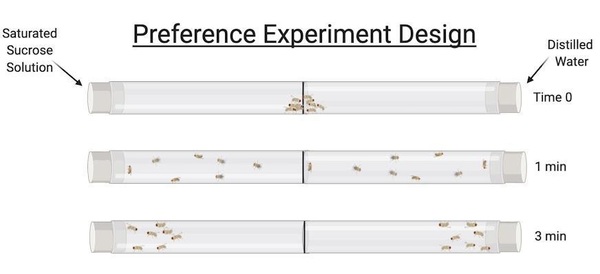Examining effects of E. muscae on olfactory function in D. melanogaster
(1) Acton-Boxborough Regional High School, Acton, Massachusetts
https://doi.org/10.59720/20-244
Many parasites manipulate the behavior of their hosts to induce specific behavior for the benefit of the parasite (i.e., to increase its reproduction and transmission). The complex ability to take over a host’s central nervous system has been studied extensively in ants (Camponotus castaneus) infected by the fungus Ophiocordyceps unilateralis s.l., but not as much in fruit flies (Drosophila melanogaster) infected by the fungus Entomophthora muscae. One behavioral change seen in ants infected by O. unilateralis s.l. is a reduced response to olfactory stimuli; however, this has yet to be tested in infected fruit flies. In this study, I tested olfactory response in flies infected with E. muscae, healthy flies (positive control), and flies without odorant receptors (negative control) via a preference experiment using a saturated sucrose solution and distilled water. The results supported the hypothesis that fruit flies do have a reduced perception of olfactory stimuli when exposed to E. muscae, as they perform more like mutant flies without odorant receptors than healthy flies with a functioning olfactory system (p < 0.05). Although, it is not fully understood how E. muscae enters and takes control of the fruit flies’ nervous system, knowing that E. muscae reduces their olfaction gives us more insight into the functionality of this parasite overall. Further research that allows us to understand how a nervous system is overtaken could potentially provide insight into the vulnerable parts of the nervous system and thus deepen our understanding of neurology as a whole.
This article has been tagged with: